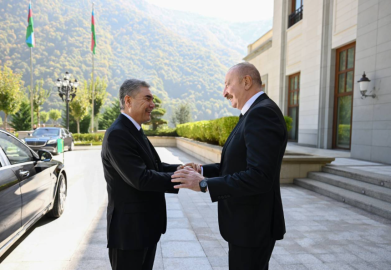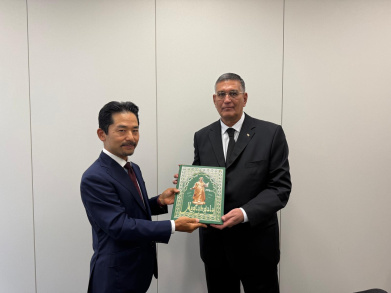China: Five Key Events of the Week
06.10.2025 | 14:30 |From September 27 to October 3, China focused on celebrating the National Day of the People’s Republic of China and the Mid-Autumn Festival. However, despite the national holiday, the country made several significant political, infrastructural, and scientific announcements that define its strategic direction.
Five Key Events of the Week
1. Strategic Priorities of President Xi Jinping
On September 30, Chinese President Xi Jinping called on the nation to implement the goals of the 15th Five-Year Plan (2026–2030). In his address, he also emphasized the need to firmly oppose separatist activities aimed at “Taiwan independence” and external interference, reaffirming the protection of China’s territorial integrity.
2. Strengthening Ties with North Korea Amid Tensions
Amid the tense situation on the Korean Peninsula, China reaffirmed its commitment to dialogue with Pyongyang. Chinese Premier Li Qiang and Foreign Minister Wang Yi held talks with North Korean Foreign Minister Choe Son Hui. Both sides called for deeper cooperation in countering hegemonism and building a multipolar world order.
3. Reaffirming the One-China Principle
On September 30, China published a document condemning attempts by the United States and other “external forces” to distort the meaning of UN General Assembly Resolution 2758. Beijing reaffirmed that the resolution clearly established the One-China principle and Taiwan’s status.
4. Opening of the World’s Highest Bridge
On September 28, the Huajiang Bridge over the Grand Canyon in Guizhou Province was inaugurated. At a height of 625 meters, it is the highest bridge in the world. This engineering marvel reduced travel time across the canyon from two hours to two minutes, boosting the local economy and tourism.
5. Breakthrough in Nuclear Fusion
On October 1, a major breakthrough was achieved in assembling China’s advanced thermonuclear fusion facility (BEST) in Hefei. This development is expected to enable China to begin producing clean electricity by 2030, bringing the country closer to harnessing an “absolute source of energy.”
ORIENT











